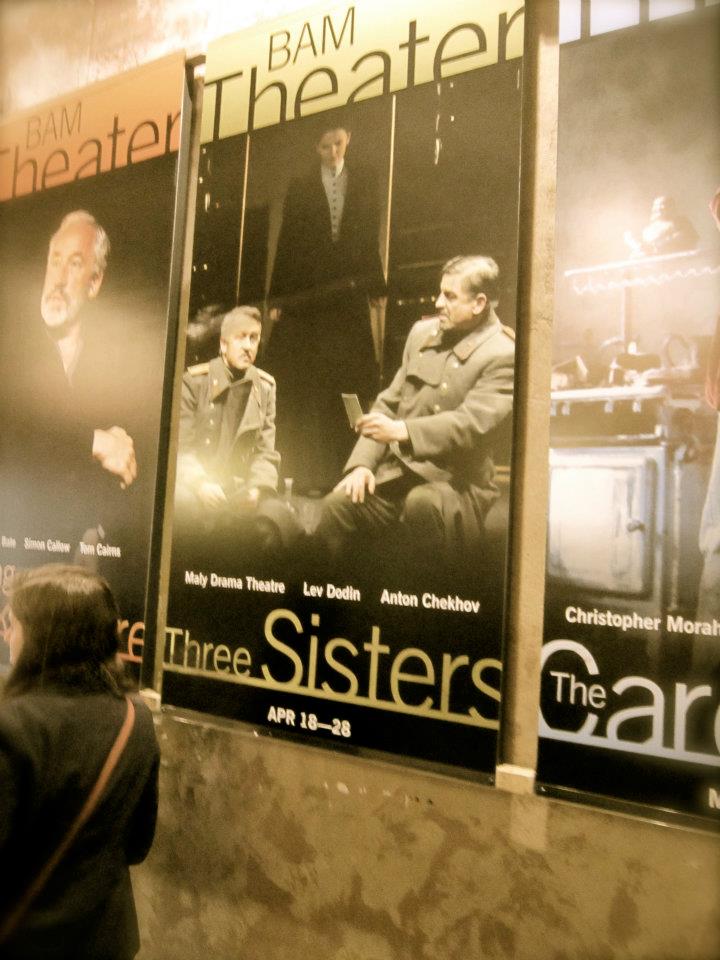There were numerous Russian speakers in the audience for THE THREE SISTERS on Friday night at BAM, and a comment I heard on the way out was that people were laughing in the wrong places because the supertitles were not well synchronized with the dialogue. This comment intersected in my mind with another I had heard at intermission, when a (presumably non-Russian speaking) mother-and-daughter remarked to each other after the first half (in which almost all of the laughter occurs) that they hadn’t remembered the play as being so grim and depressing, and agreed that they had seen enough.
I found this to be unfathomable, as Lev Dodin’s has the lightest touch of any Three Sisters I have seen, until, that is, the tone of the play itself shifts and forces the characters to confront or, worse, resign themselves to their delusions. The laughter I did not much partake in, checking the titles only now and then to get my bearings; rather I let myself enjoy the affectionate lyricism of the dramatic music that was created in the first part, only to darken appropriately in the second. I teach Chekhov in translation and have known the plays for years, so I understand that approaching the experience in this way would not work for everyone; but I do think that it revealed to me what was best and distinctive in the production. Dodin understands not only the comedy (that Chekhov is comic is by now a commonplace, but achieving it on stage a different matter); but also the layers of time and temporal experience entailed by the dramaturgy; and how that interacts with the yearnings of the characters, who sense the irony that a present pleasure can vanish in an instant but that a present pain – often in the form of need or desire – can persist indefinitely.
The innovations of the production include a subtle forcing of the action into an exterior space (the house is reduced to a facade) and a softening of the ebb and flow of who is or is not on stage at any given time, meaning (if I was not fooled by the titles being off) that a character is sometimes present when not originally intended and thus illustrates (or even overhears) what the others say about her. I was in awe of the acting and its organic wholeness, the technical poise, precision and naturalness that is the essence of ensemble acting. In the end, these visitors from the Maly Drama Theatre of St. Petersburg gave me Chekhov, in all of its denseness and profundity, although that seemed to pose a challenge to a sizable minority of the audience.
For more on events at BAM, click here.
